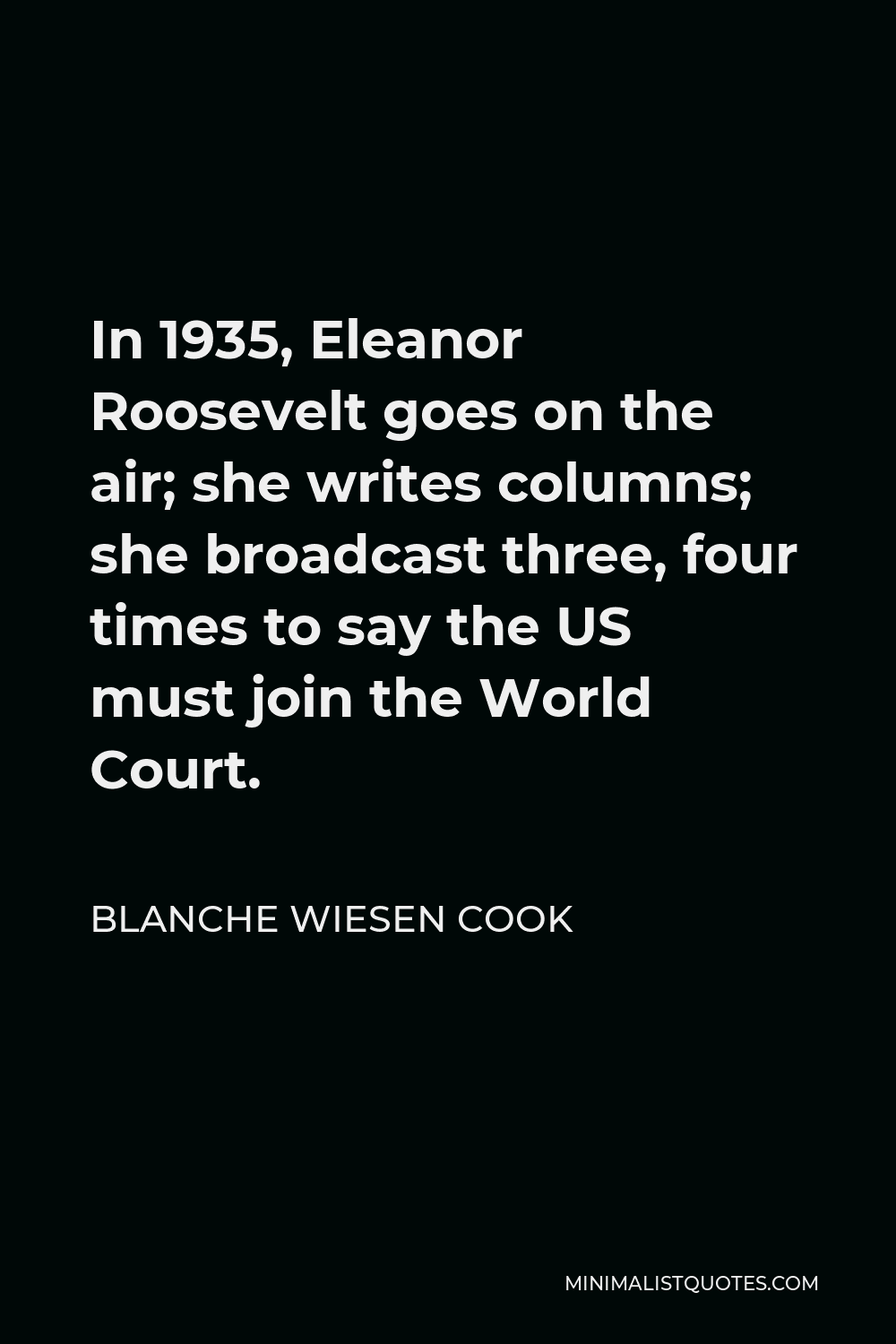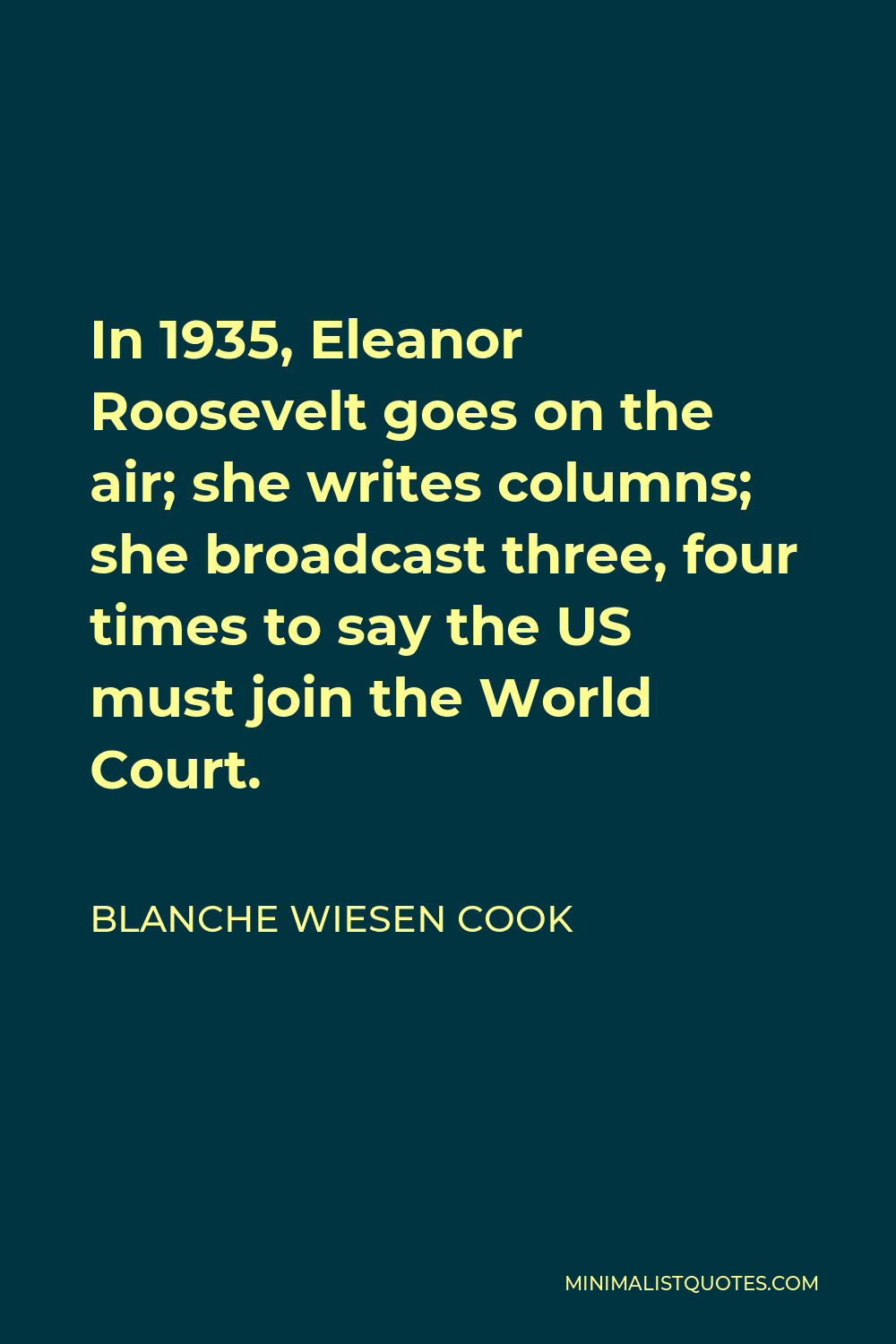You know, unloved, judged harshly, never up to par. And she was her father’s favorite, and her mother’s unfavorite. So her father was the man that she went to for comfort in her imaginings.
BLANCHE WIESEN COOKIn 1935, Eleanor Roosevelt goes on the air; she writes columns; she broadcast three, four times to say the US must join the World Court.
More Blanche Wiesen Cook Quotes
-





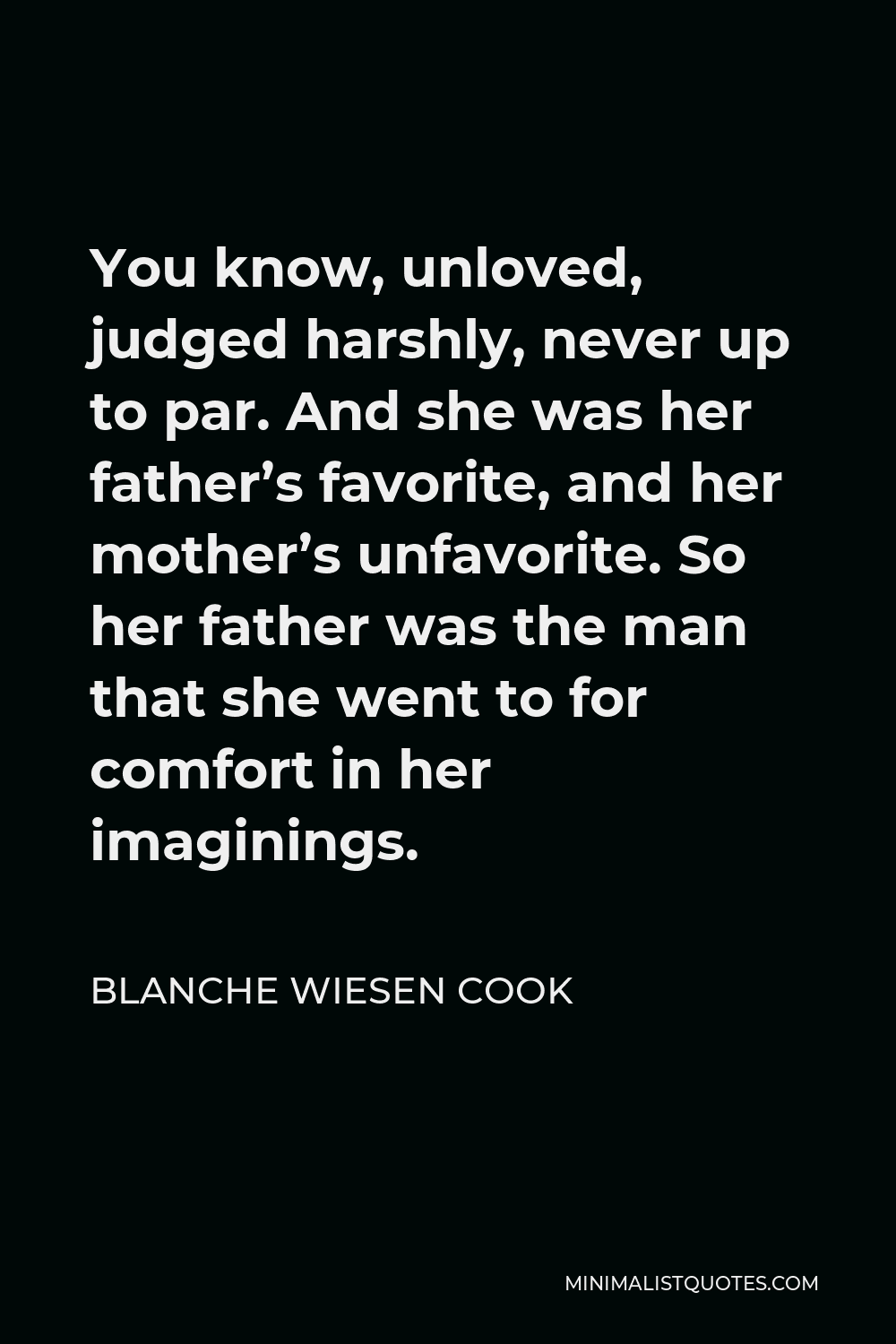
-





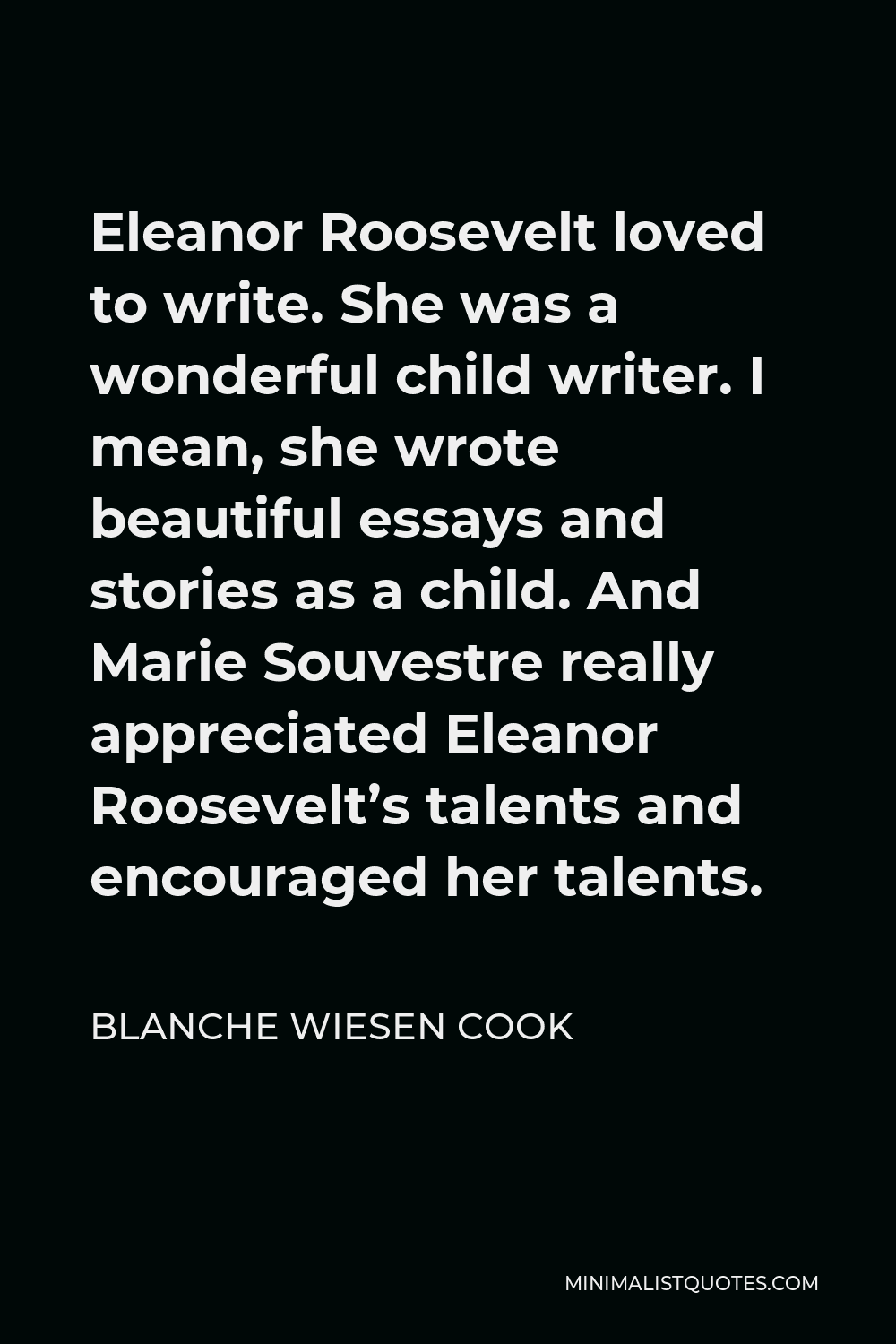
Eleanor Roosevelt loved to write. She was a wonderful child writer. I mean, she wrote beautiful essays and stories as a child. And Marie Souvestre really appreciated Eleanor Roosevelt’s talents and encouraged her talents.
BLANCHE WIESEN COOK -





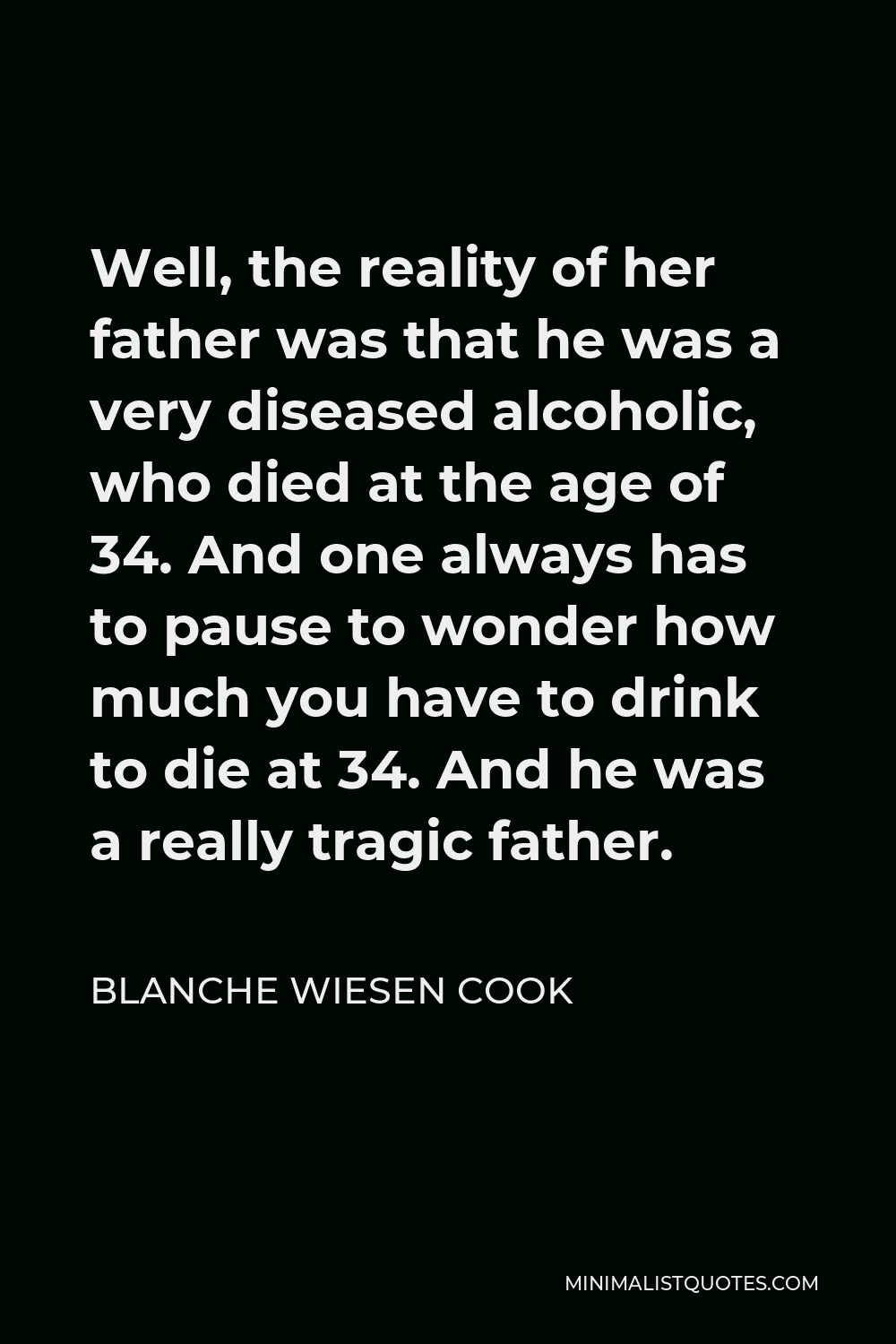
Well, the reality of her father was that he was a very diseased alcoholic, who died at the age of 34. And one always has to pause to wonder how much you have to drink to die at 34. And he was a really tragic father.
BLANCHE WIESEN COOK -





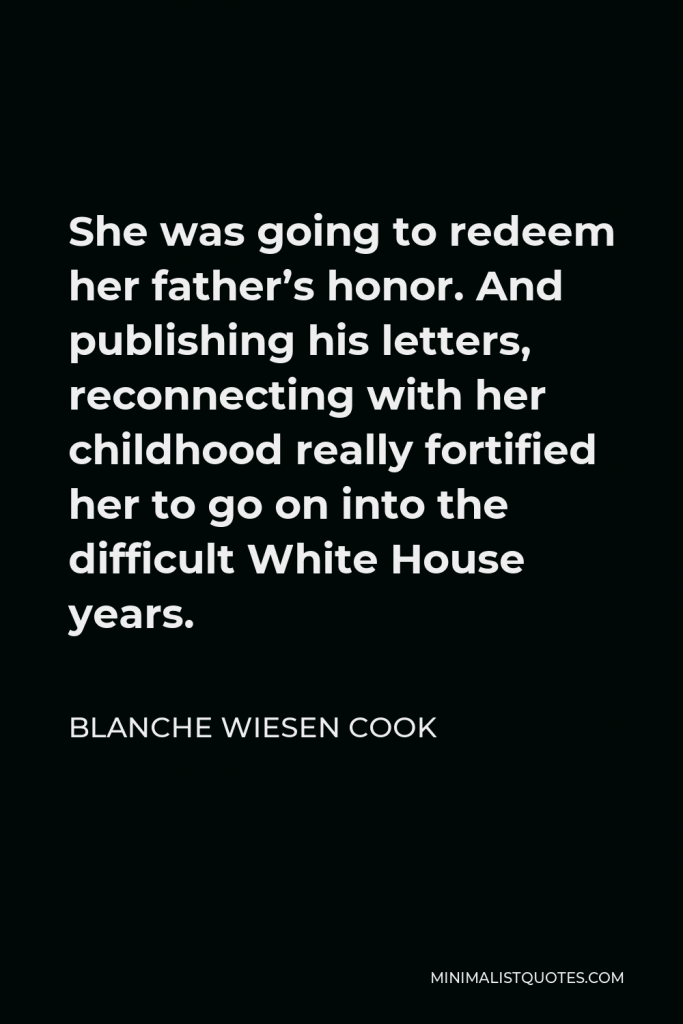

She was going to redeem her father’s honor. And publishing his letters, reconnecting with her childhood really fortified her to go on into the difficult White House years.
BLANCHE WIESEN COOK -





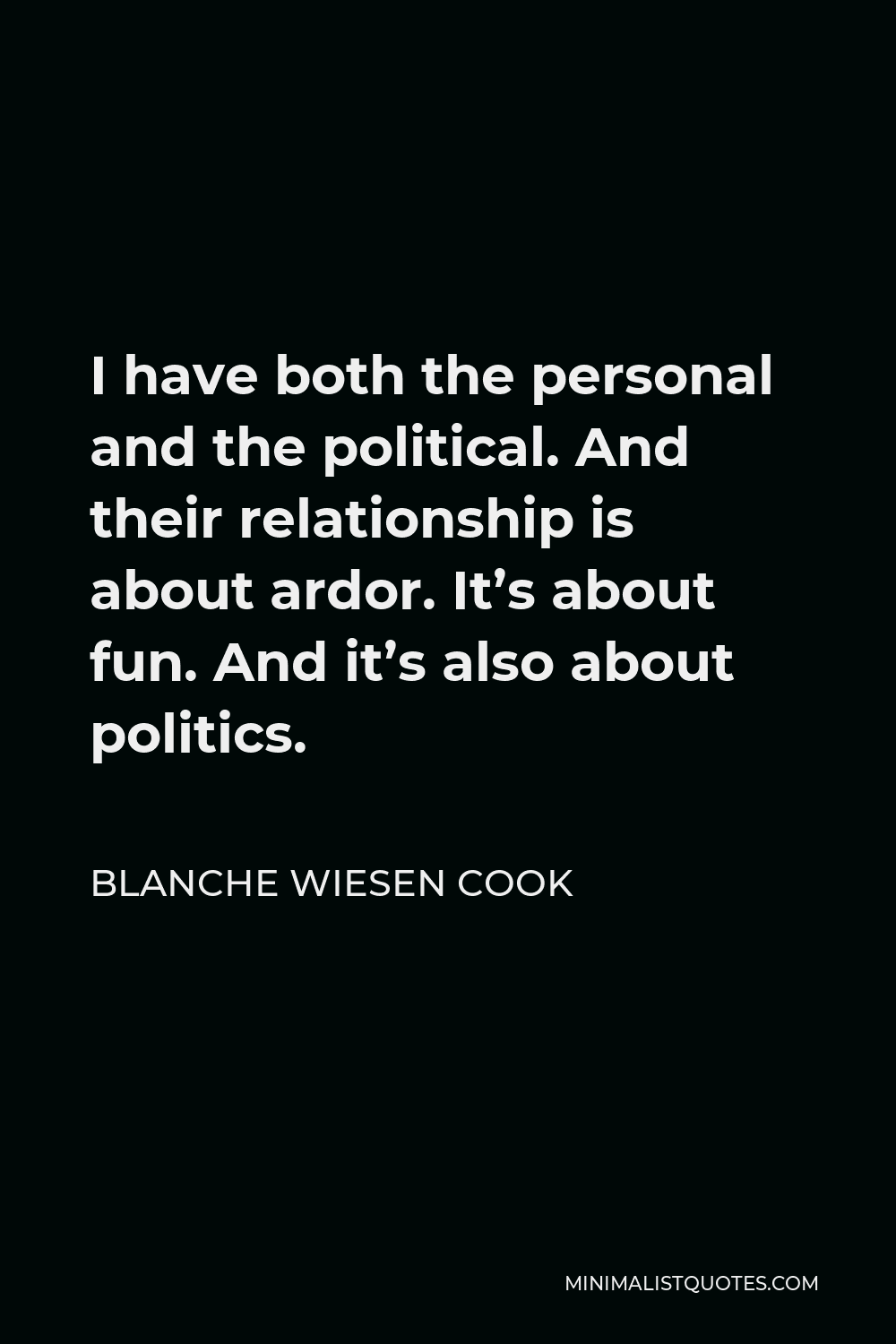
I have both the personal and the political. And their relationship is about ardor. It’s about fun. And it’s also about politics.
BLANCHE WIESEN COOK -





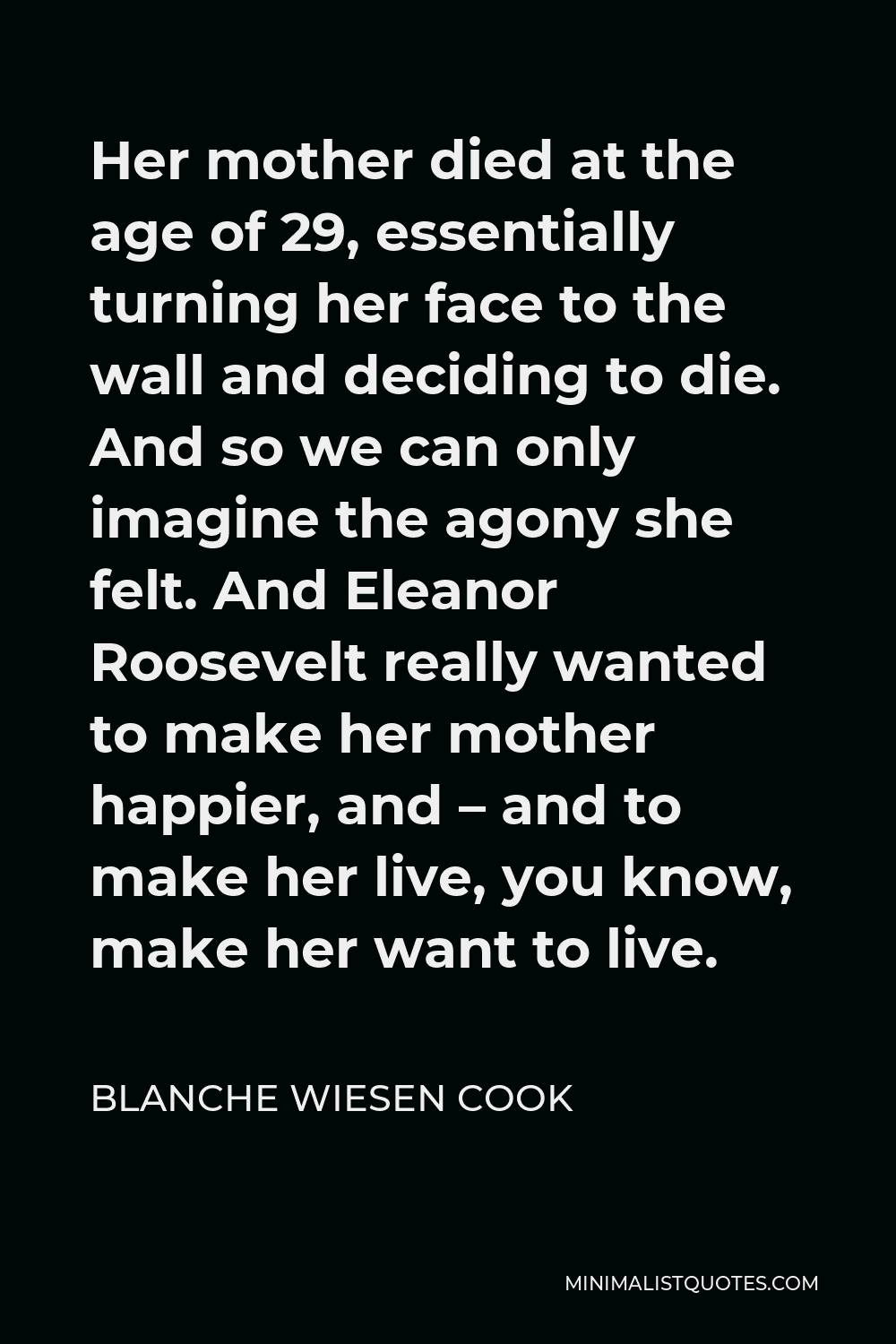
Her mother died at the age of 29, essentially turning her face to the wall and deciding to die. And so we can only imagine the agony she felt. And Eleanor Roosevelt really wanted to make her mother happier, and – and to make her live, you know, make her want to live.
BLANCHE WIESEN COOK -





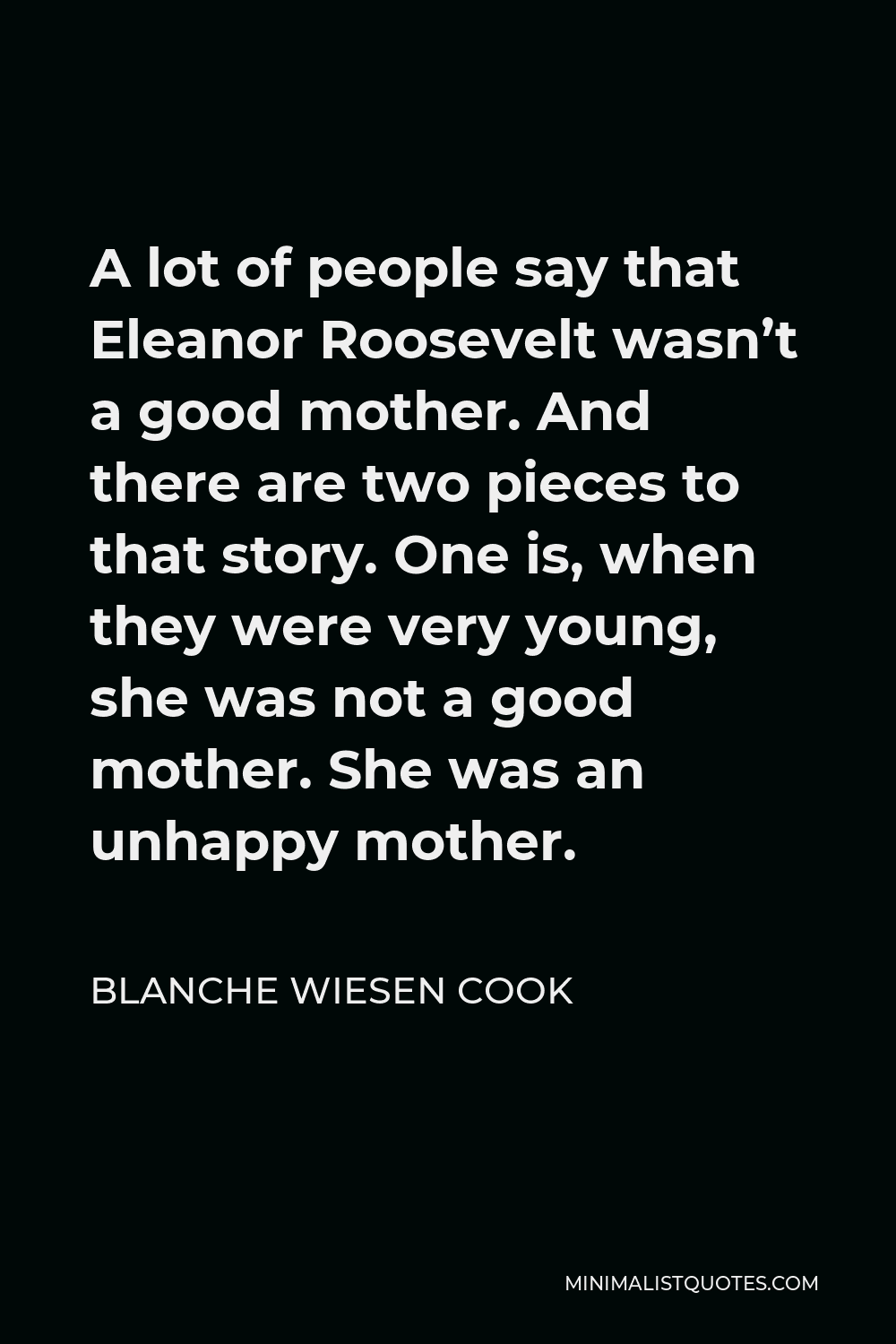
A lot of people say that Eleanor Roosevelt wasn’t a good mother. And there are two pieces to that story. One is, when they were very young, she was not a good mother. She was an unhappy mother.
BLANCHE WIESEN COOK -






Eleanor Roosevelt doesn’t ever do anything that is going to hurt her husband. She tries things out on him. She gets permission to do things.
BLANCHE WIESEN COOK -





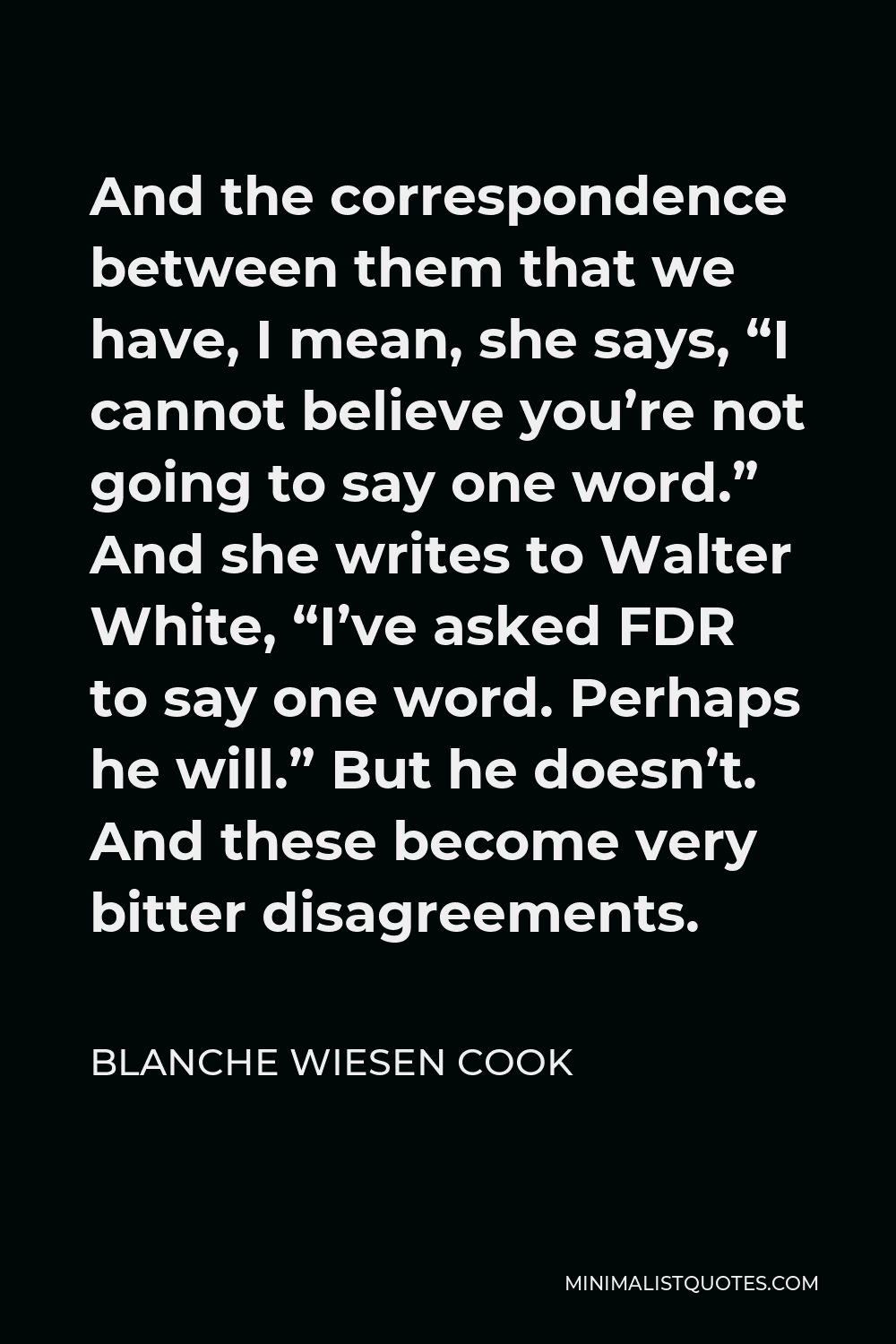
And the correspondence between them that we have, I mean, she says, “I cannot believe you’re not going to say one word.” And she writes to Walter White, “I’ve asked FDR to say one word. Perhaps he will.” But he doesn’t. And these become very bitter disagreements.
BLANCHE WIESEN COOK -





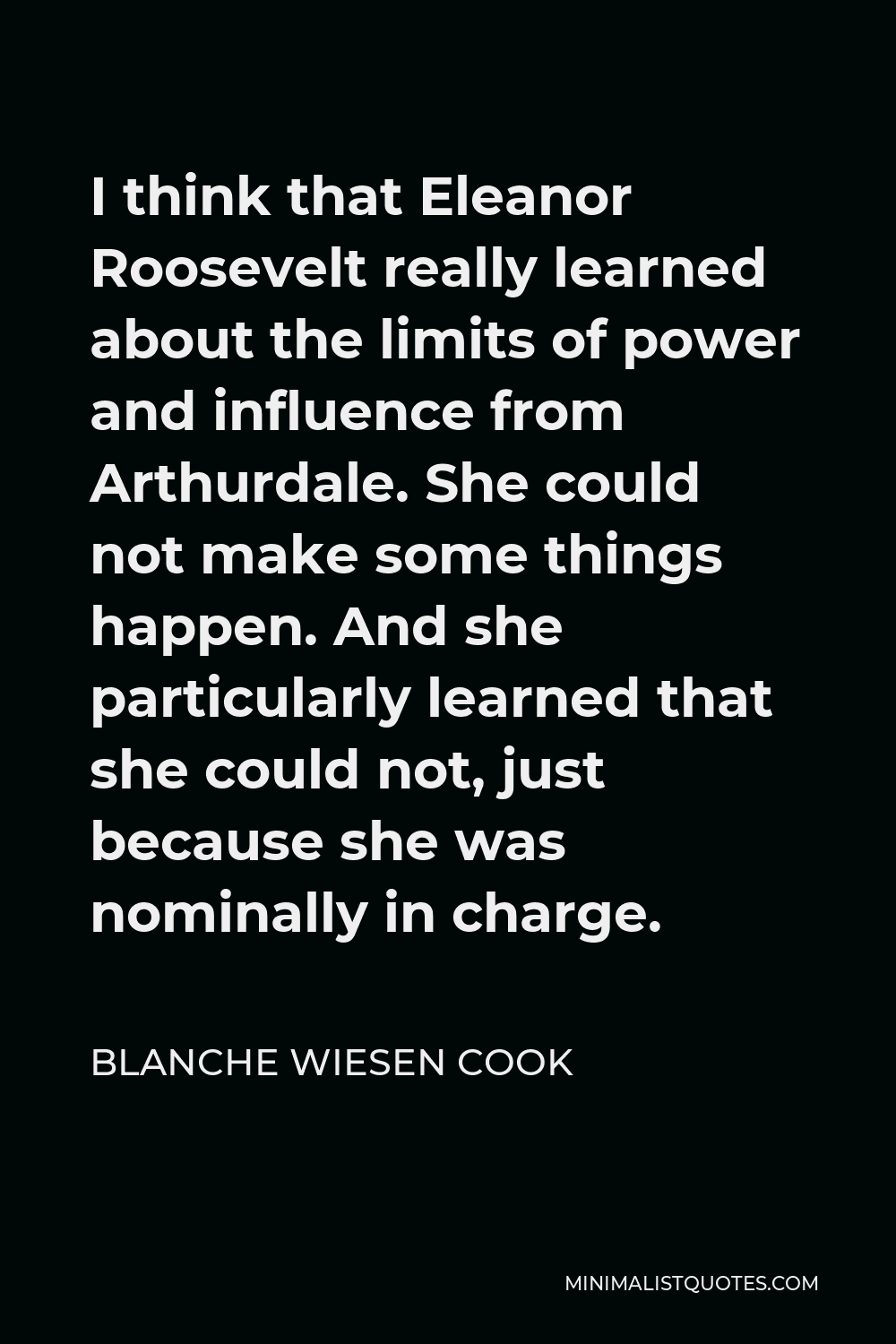
I think that Eleanor Roosevelt really learned about the limits of power and influence from Arthurdale. She could not make some things happen. And she particularly learned that she could not, just because she was nominally in charge.
BLANCHE WIESEN COOK -





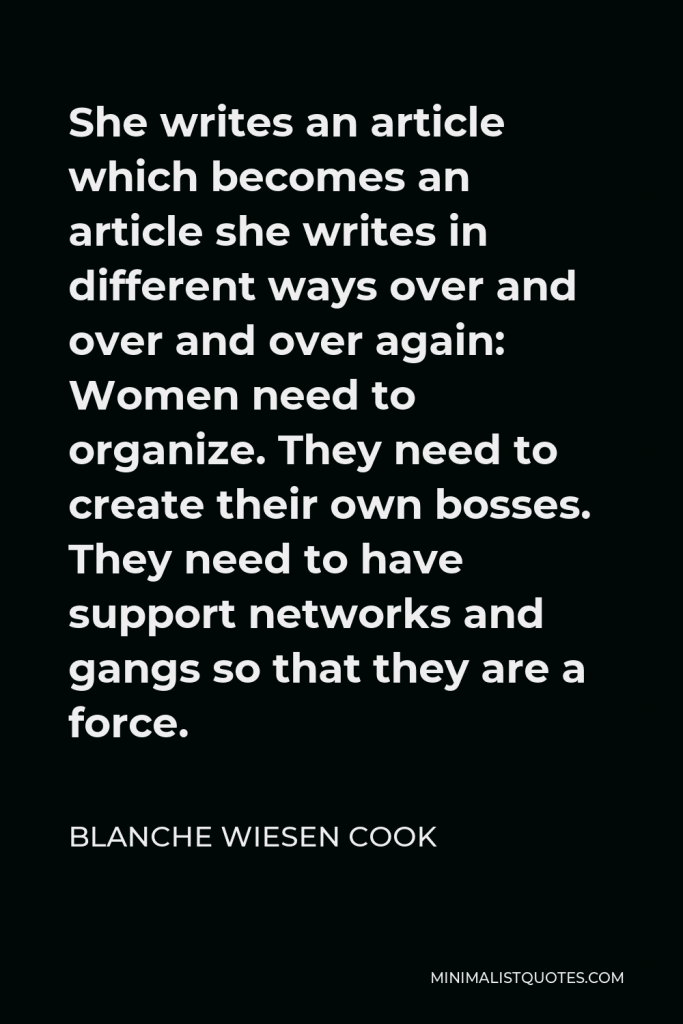

She writes an article which becomes an article she writes in different ways over and over and over again: Women need to organize. They need to create their own bosses. They need to have support networks and gangs so that they are a force.
BLANCHE WIESEN COOK -





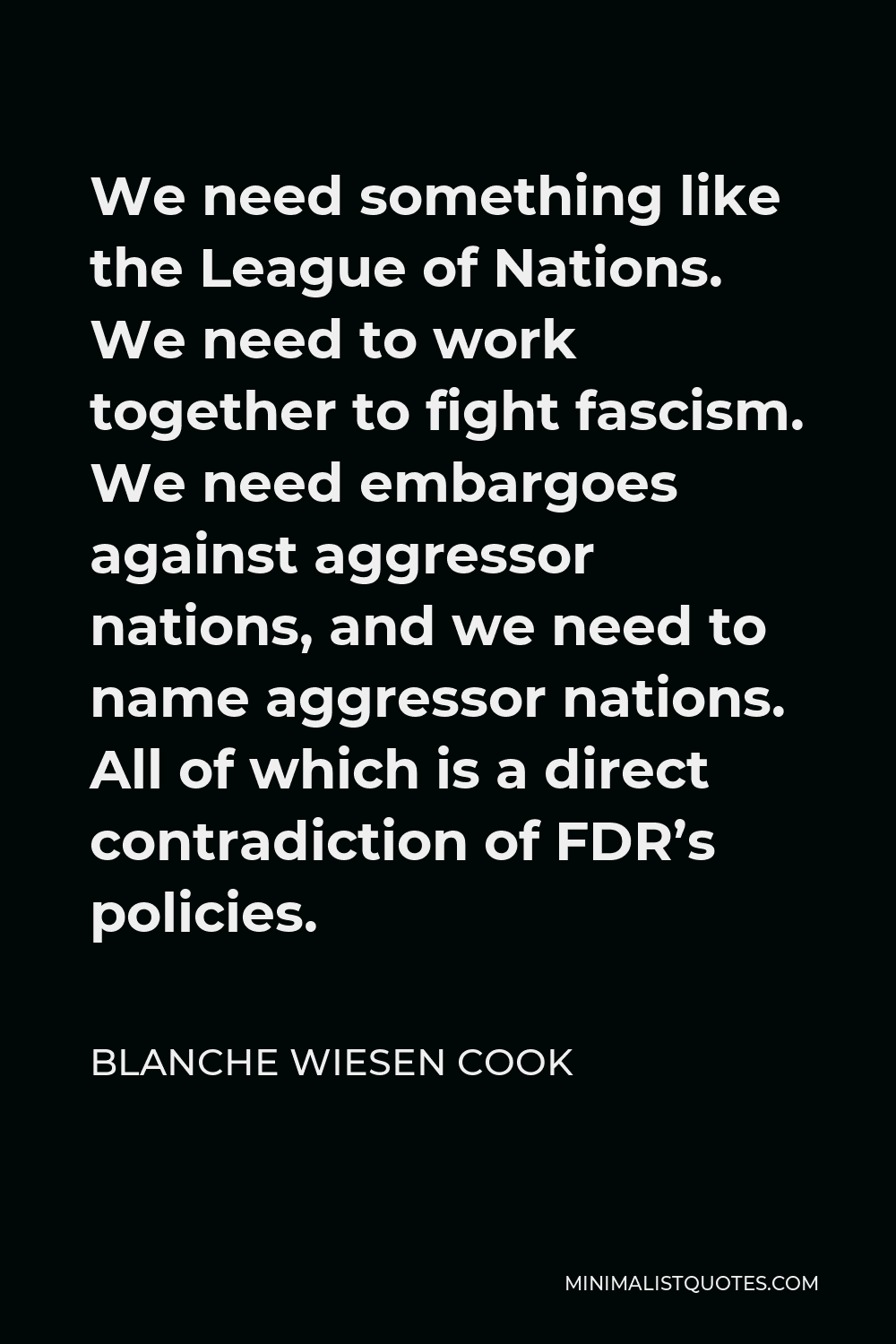
We need something like the League of Nations. We need to work together to fight fascism. We need embargoes against aggressor nations, and we need to name aggressor nations. All of which is a direct contradiction of FDR’s policies.
BLANCHE WIESEN COOK -





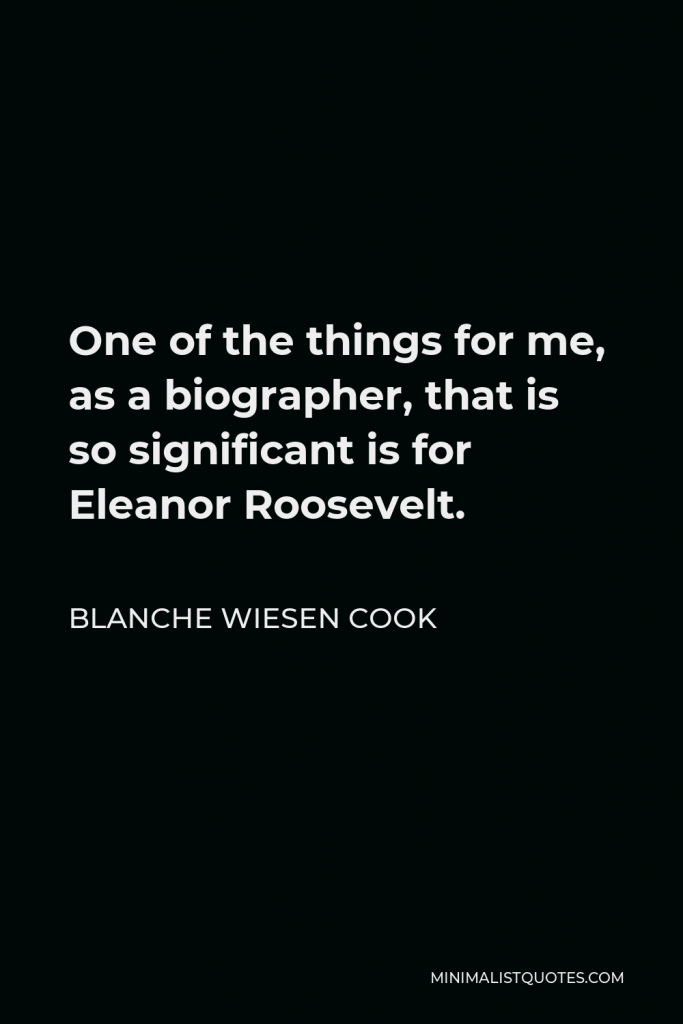

One of the things for me, as a biographer, that is so significant is for Eleanor Roosevelt.
BLANCHE WIESEN COOK -





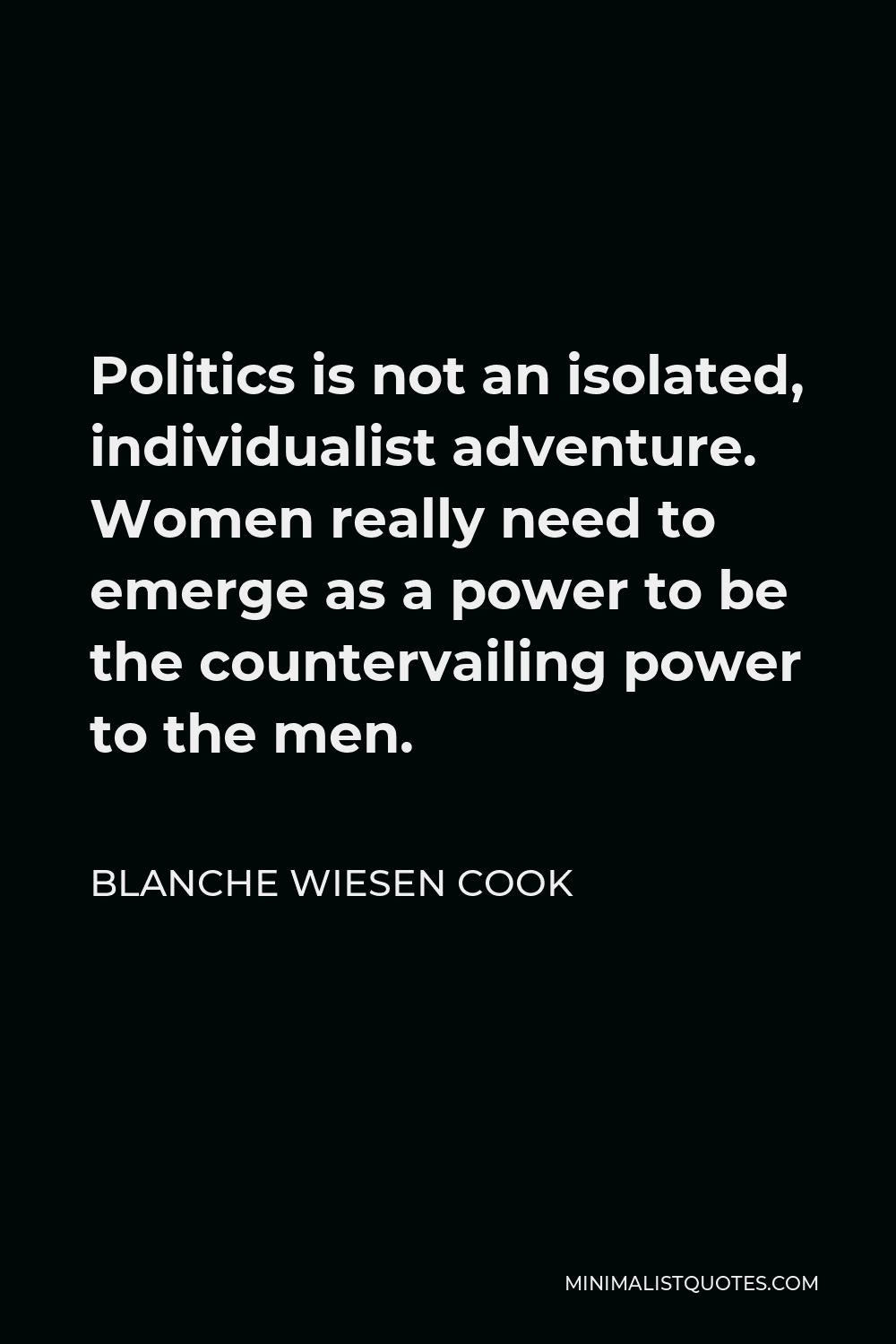
Politics is not an isolated, individualist adventure. Women really need to emerge as a power to be the countervailing power to the men.
BLANCHE WIESEN COOK -





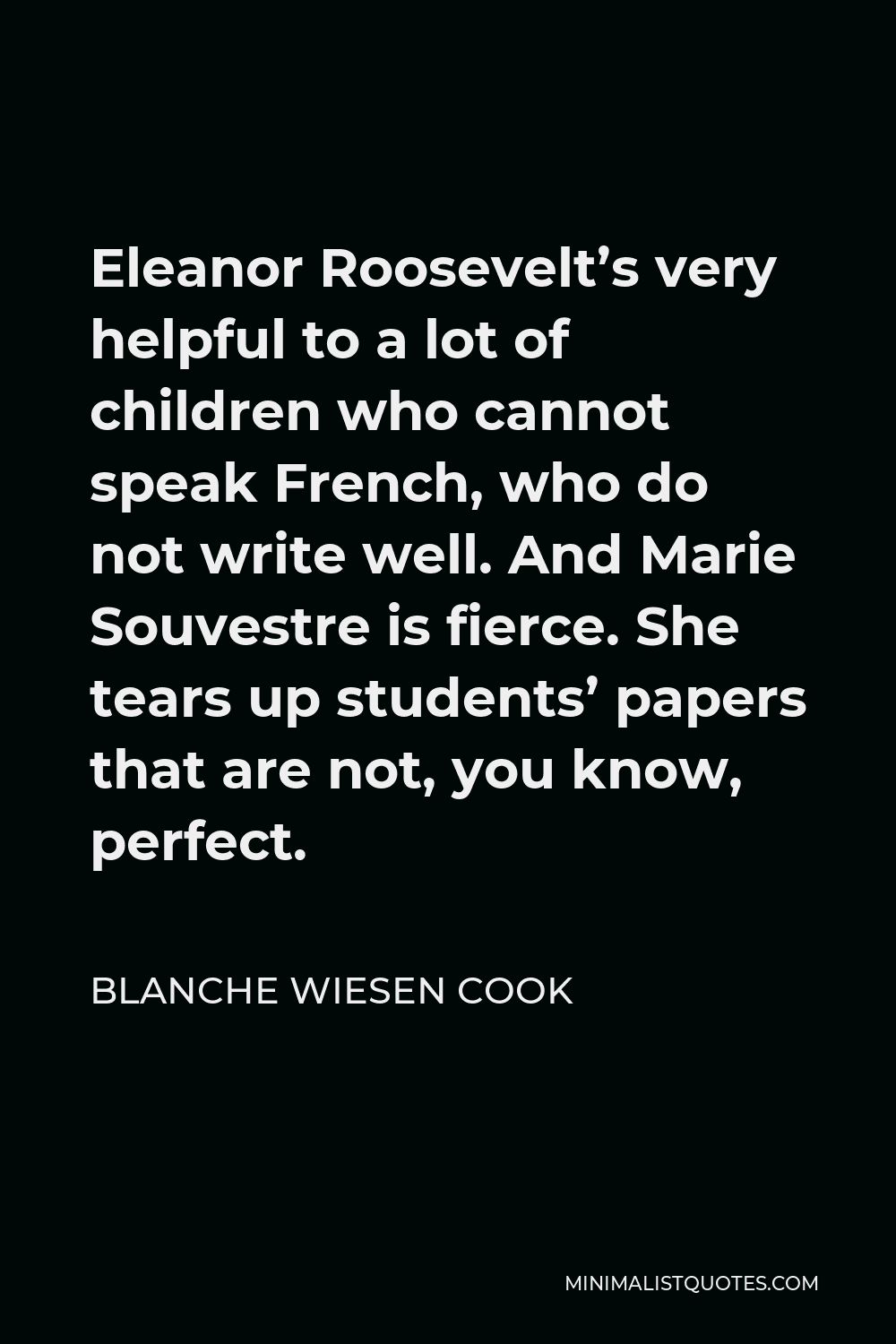
Eleanor Roosevelt’s very helpful to a lot of children who cannot speak French, who do not write well. And Marie Souvestre is fierce. She tears up students’ papers that are not, you know, perfect.
BLANCHE WIESEN COOK -





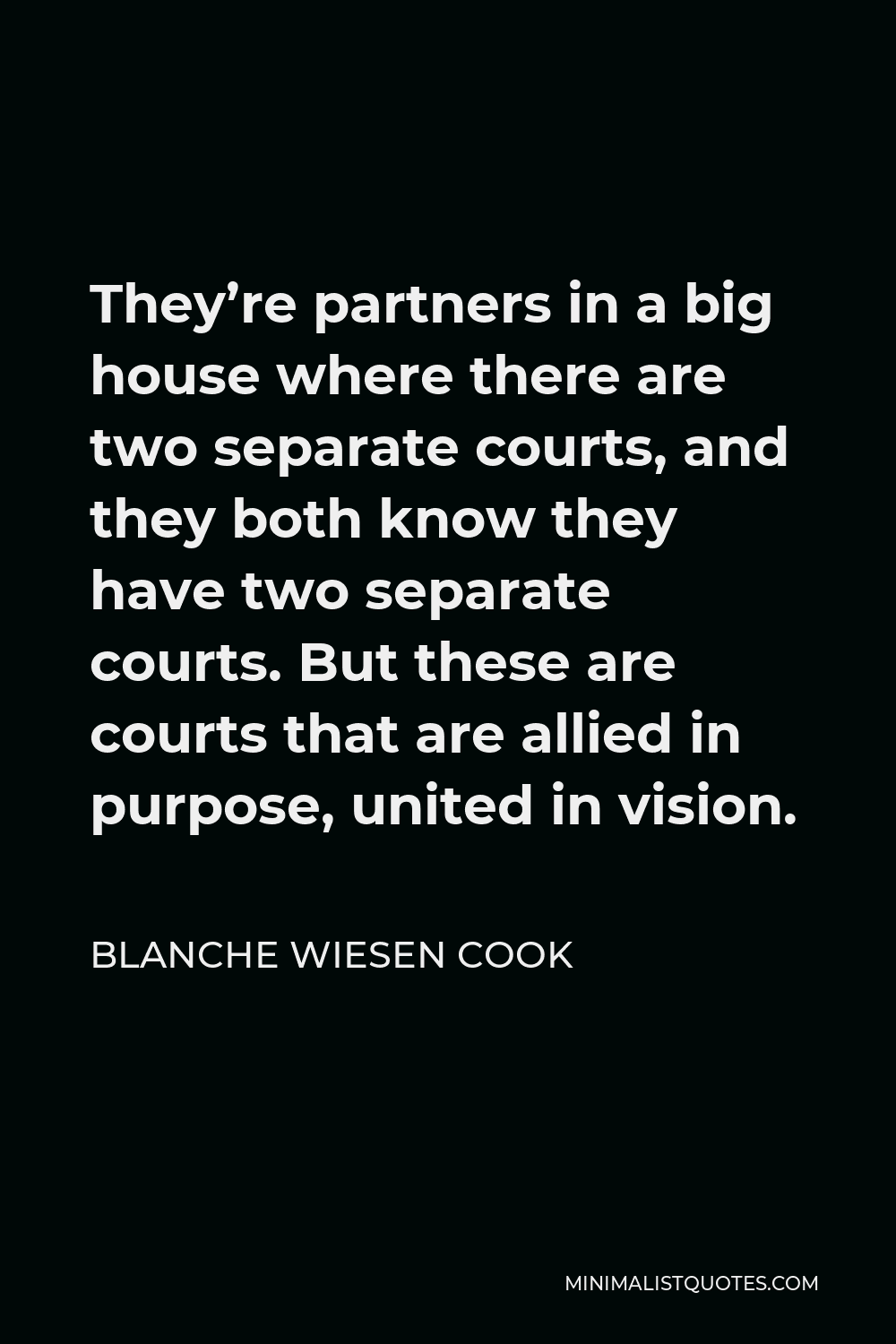
They’re partners in a big house where there are two separate courts, and they both know they have two separate courts. But these are courts that are allied in purpose, united in vision.
BLANCHE WIESEN COOK
